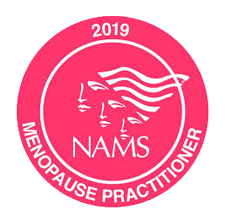Painful Intercourse
The term for painful intercourse is dyspareunia. Dyspareunia is defined as persistent or recurrent genital pain that occurs just before, during or after intercourse. According to the American College of Gynecology, 2 out of 3 women will experience some type of dyspareunia in their lifetime.
Dyspareunia can be divided into three types of pain: superficial, vaginal and deep. Superficial dyspareunia occurs when attempting penetration and is usually secondary to anatomic or irritating conditions, or vaginismus. Vaginal dyspareunia is pain related to friction – lubrication issues, including arousal disorders. Deep dyspareunia is pain related to thrusting, often associated with pelvic disease or relaxation.
Vaginismus
Vaginismus is defined as the involuntary contraction of the muscles of the outer one third of the vagina, is often related to sexual phobias or past abuse or trauma. Vaginismus may be complete or situational, so that a pelvic examination might be possible while intercourse is not. Vaginismus may also be medical; scars in the vagina from an injury, childbirth or surgery, irritations from douches, spermicides or latex in condoms, and/or pelvic infections.
Treatment of women with vaginismus consists of progressive muscle relaxation and vaginal dilatation, but, the vagina is not really being stretched. Progressive muscle relaxation can be taught during by a provider during an instructional examination by having the patient alternate contracting and relaxing the pelvic muscles around the provider’s finger. Women with vaginismus can achieve vaginal dilatation with the use of commercial dilators or tampons of increasing diameter, placed into the vagina for 15 minutes twice daily. Once the patient can easily accept an equivalent-sized dilator into the vagina, penile penetration by the partner can occur. Success rates approach 90 percent. When a patient does not respond to this therapy a sex therapist who specializes in the treatment of women with this disorder should be the next step.
Vulvodynia
From the National Vulvodynia Association:
Vulvodynia, simply put, is chronic vulvar pain without an identifiable cause. The location, constancy and severity of the pain vary among sufferers. Some women experience pain in only one area of the vulva, while others experience pain in multiple areas. The most commonly reported symptom is burning, but women’s descriptions of the pain vary. One woman reported her pain felt like “acid being poured on my skin,” while another described it as “constant knife-like pain.”
There are two main subtypes of vulvodynia, which sometimes co-exist:
Vulvar Vestibulitis Syndrome (aka Provoked Vestibulodynia)
Painful Intercourse for WomenAs shown in the diagram on the right, vulvar vestibulitis syndrome (VVS) is characterized by pain limited to the vestibule, the area surrounding the opening of the vagina. It occurs during or after pressure is applied to the vestibule, e.g., with sexual intercourse, tampon insertion, a gynecologic examination, prolonged sitting and/or wearing fitted pants.
VVS is further classified as Primary or Secondary. Women with Primary VVS have experienced vestibular pain since the first attempt at vaginal penetration. Women with Secondary VVS have experienced pain-free sexual intercourse prior to the development of pain.
Generalized Vulvodynia
Painful Intercourse WomenFor women with generalized vulvodynia (GV), pain occurs spontaneously and is relatively constant, but there can be some periods of symptom relief. Activities that apply pressure to the vulva, such as prolonged sitting or simply wearing pants, typically exacerbate symptoms.
Some women experience pain in a specific area, e.g., only in the left labia or near the clitoris, while others experience pain in multiple areas, e.g., in the labia, vestibule, and clitoris. In the latter group, pain may also occur in the perineum and inner thighs, as demonstrated in the diagram on the right.
Learn more by viewing the NVA’s Online Teaching Program.
Contact Us
13126 120th Ave NE
Kirkland, WA 98034
Phone: (425) 398-9355
Fax: (833) 905-2316
Email: info@drserena.com
We serve patients Monday through Friday from 8 a.m. – 4:30 p.m.
COMPLETE THE FORM TO SEND US YOUR QUESTIONS OR COMMENTS
"*" indicates required fields




